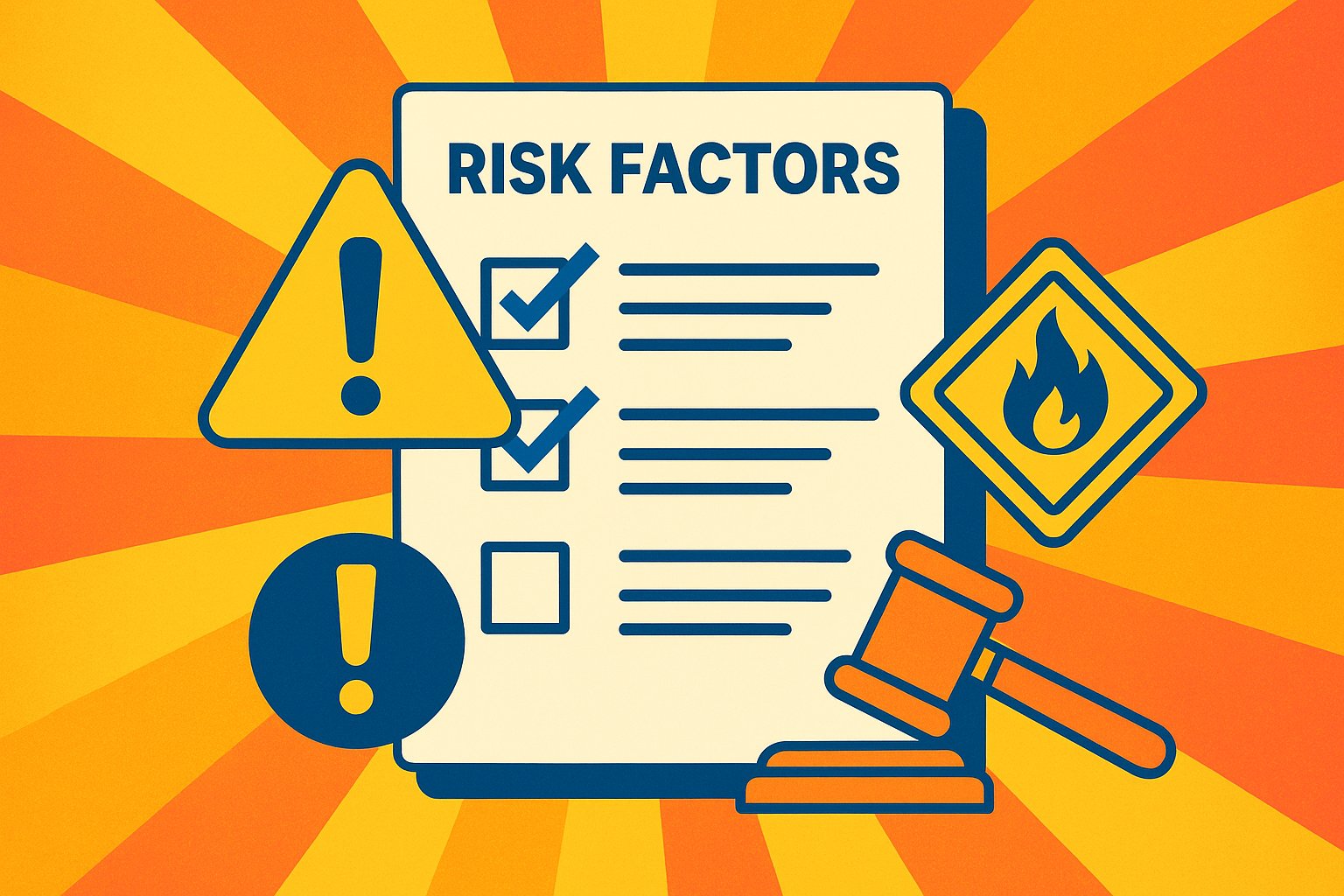Why Legal Expertise Can Make or Break Your Crowdfund Raise
In the burgeoning landscape of equity crowdfunding, securing the capital you need to scale often feels like navigating a maze of opportunity and risk. Platforms powered by Regulation Crowdfunding (Reg CF), Regulation A+, and private offerings promise access to a diverse pool of investors, from retail supporters to accredited angels. Yet behind the promise of democratized capital lies a complex regulatory framework designed to protect investors and preserve market integrity. At the very heart of this framework stands the securities attorney: a legal specialist whose guidance can mean the difference between a seamless, compliant raise and a campaign derailed by costly missteps.
At first glance, hiring a securities attorney may seem like an unnecessary expense—particularly for early-stage founders operating on a shoestring budget. After all, many platforms tout user-friendly interfaces and built-in compliance checklists intended to demystify the process. However, beneath the surface of these tools lies a web of intricate legal requirements: detailed disclosure obligations, precise filing deadlines, investor eligibility verifications, and nuanced interpretations of what constitutes a “security” in the eyes of the law. Mistakes or omissions at any stage can trigger SEC enforcement actions, backer lawsuits, platform suspensions, and reputational damage that extend far beyond your initial campaign.
In this comprehensive guide, we will explore whether you truly need a securities attorney for your crowdfund raise. We’ll unpack the regulatory landscape that governs crowdfunding offerings, illustrate the specific roles and benefits of legal counsel, and examine the risks of going it alone. We will also consider scenarios where a DIY approach—guided by platform resources and generalist counsel—might suffice, as well as the critical factors to weigh when selecting a securities attorney. Ultimately, you’ll gain clarity on how investing in legal expertise can transform compliance from a reactive hurdle into a strategic asset that bolsters investor confidence and streamlines your path to successful fundraising.
Understanding Crowdfunding and Securities Law
Crowdfunding has transformed the fundraising paradigm, allowing companies to solicit investment commitments directly from the public through online portals. Under Reg CF, eligible U.S. issuers can raise up to $5 million in a 12-month period—an increase from the original $1.07 million cap—provided they meet stringent requirements for disclosure, investor limits, and platform registration. Similarly, Regulation A+ offers a tiered approach to public offerings, enabling raises of up to $75 million with audited financial statements and SEC qualification. Even private crowdfunding under Rule 506(b) or 506(c) of Regulation D hinges on precise adherence to solicitation and accreditation rules.
Securities laws—codified primarily in the Securities Act of 1933 and the Securities Exchange Act of 1934—aim to ensure that investors receive the information they need to make informed decisions and that fraudulent activities are deterred. At their core, these regulations define what constitutes a “security,” outline registration and exemption protocols, and prescribe disclosure obligations. For crowdfunding raises, issuers must navigate overlapping statutes, SEC rulemakings, and FINRA guidelines governing funding portals. The complexity multiplies when considering cross-border backers, state blue-sky laws, and specialized industry regulations. A securities attorney serves as your guide through this labyrinth, interpreting legal texts and mapping their implications to your unique campaign.
The Critical Roles of a Securities Attorney
When you engage a securities attorney for your crowdfund raise, you enlist a partner whose expertise extends across multiple dimensions of legal risk management. First and foremost, a securities attorney ensures that your offering documents—Form C for Reg CF, Form 1-A for Regulation A+, or private placement memoranda under Regulation D—contain all required disclosures in the format mandated by the SEC. This includes detailed narratives on business operations, risk factors, use of proceeds, capitalization tables, and financial statements prepared or audited according to SEC standards.
Beyond drafting compliant documents, securities counsel advises on structuring the offering itself. They help you determine the optimal security type—common or preferred equity, convertible notes, revenue-share instruments, or debt—aligned with your growth strategy and investor expectations. They also guide you on setting investment limits, establishing investor questionnaires to verify accreditation status, and implementing KYC/AML protocols required under FINRA and Bank Secrecy Act regulations. During the campaign, your attorney monitors ongoing obligations, such as filing amendments for material changes and addressing investor inquiries that touch on legal nuances. In the event of a dispute or SEC inquiry, your securities attorney stands as the frontline defender, responding to enforcement letters and mitigating potential penalties.
Risks of Skipping Specialized Legal Counsel
Opting to forgo a securities attorney can result in a cascade of unintended consequences. Even minor drafting errors—such as mislabeling a security or omitting a material risk factor—can trigger SEC enforcement actions, leading to cease-and-desist orders, civil monetary penalties, and injunctions against further fundraising. Platforms may suspend or delist campaigns with deficient filings, stranding committed capital in escrow until corrections are made. For issuers, each amendment introduces delays, additional legal fees, and negative signals to prospective backers observing the campaign’s progress.
Investor lawsuits pose a parallel threat: backers who suffer losses may claim they relied on inaccurate or incomplete disclosures when making investment decisions. Civil liabilities for rescission or damages can escalate into class-action lawsuits, draining resources and tarnishing your brand. Reputational damage extends to future capital-raising efforts—venture capitalists and strategic partners scrutinize past compliance histories when deciding whether to engage. In a worst-case scenario, criminal referrals by the SEC can arise from alleged intentional misrepresentation, placing founders at risk of prosecution and personal liability. These high stakes underscore the value of specialized securities counsel in averting pitfalls that might otherwise derail your crowdfund raise.
Scenarios Where DIY or Generalist Counsel May Suffice
While a securities attorney offers comprehensive protection, there may be circumstances where a leaner approach proves viable—particularly for small-scale, reward-based campaigns or very early-stage equity raises. If you’re conducting a reward-only Kickstarter or Indiegogo project that does not offer any equity or debt, the securities laws generally do not apply; instead, you must focus on consumer protection rules enforced by the FTC and state attorneys general. In such cases, generalist legal counsel with experience in advertising law, intellectual property, and e-commerce may be sufficient to review your campaign page, terms and conditions, and fulfillment promises.
For equity crowdfunding raises under Reg CF below certain thresholds, you might leverage the platform’s compliance tools and template documents to handle basic filing requirements. Platforms often provide automated checklists for Form C fields, require financial review by an independent accountant, and offer built-in escrow and investor verification services. If your raise is modest—say, under a few hundred thousand dollars—and you have prior experience with securities filings, you may choose to engage a general corporate lawyer to vet your materials at key junctures. However, as your target raise approaches the multimillion-dollar ceiling or involves complex features—multiple share classes, revenue-share notes, or intricate capitalization structures—bringing in a securities specialist is strongly advisable.
Weighing Costs and Benefits: Investing in Legal Assurance
Engaging a securities attorney typically involves a retainer plus hourly billing, resulting in legal fees that can range from $10,000 for a straightforward small Reg CF offering to upwards of $50,000 or more for a Regulation A+ raise with audited financials and multi-jurisdictional considerations. While these costs may seem steep, they should be compared against potential expenses of regulatory fines, litigation fees, campaign delays, and lost fundraising opportunities. Insurance products like Directors & Officers (D&O) liability coverage can mitigate certain risks, but they do not replace the preventive value of expert legal drafting and strategic counsel.
Moreover, the presence of reputable securities counsel signals professionalism to sophisticated investors. In later-stage rounds, venture capital firms frequently request disclosure materials and requiring evidence of prior compliance rigor. By investing in legal assurance early, you not only secure your current campaign but also pave the way for smoother Series A and beyond. The calculus is clear: a well-structured legal foundation reduces friction, enhances investor confidence, and safeguards the long-term viability of your venture.
Selecting the Right Securities Attorney for Your Campaign
Choosing a securities attorney requires careful vetting. Look for counsel with specific experience in crowdfunding and capital formation, evidenced by a track record of completed Reg CF, Regulation A+, and Regulation D offerings. Evaluate their familiarity with your industry’s regulatory nuances—whether that’s fintech, biotech, consumer products, or blockchain tokens. Seek referrals from peers who have successfully completed similar raises, and review attorney bios for professional affiliations such as memberships in the Forum of Federal Securities Law.
During initial consultations, assess the attorney’s communication style and responsiveness. A good securities lawyer should translate complex legal requirements into actionable guidance, propose practical solutions, and outline a clear scope of work with transparent fee structures. Discuss their support model: will you work directly with the partner, or will associates handle most drafting? Confirm that they will coordinate effectively with your accountants, financial advisors, and platform representatives. Finally, ensure that your attorney maintains robust continuing education practices, staying current on SEC rule changes and emerging compliance trends that could impact your offering.
Best Practices for Collaborating with Your Securities Attorney
To maximize the value of your legal partnership, adopt a collaborative approach. Begin early by engaging counsel during your campaign’s strategic planning phase—well before your go-live date. Provide your attorney with comprehensive background materials: business plans, capitalization tables, financial statements, and any existing investor agreements. Establish a shared timeline that aligns legal deliverables with marketing milestones, such as press releases or pre-campaign teasers.
Maintain open lines of communication throughout the process. Promptly flag any changes in business strategy, new investor commitments, or emerging risks so your attorney can assess implications for your disclosures. Schedule regular check-ins to review drafts of filing documents, discuss investor inquiries requiring legal input, and update compliance calendars for post-fundraise reporting obligations. By embedding your securities attorney into your core campaign team, you ensure seamless alignment between legal compliance and fundraising execution.
Alternatives and Supplementary Resources
While securities counsel offers the most comprehensive protection, you can supplement their expertise with additional resources. Industry associations and online forums dedicated to crowdfunding best practices provide valuable peer-to-peer insights. The SEC’s EDGAR database and staff guidance releases offer official interpretations of crowdfunding rules. Specialized compliance software platforms can automate filing reminders, generate disclosure checklists, and monitor evolving regulatory deadlines. Additionally, consider engaging a crowdfunding consultant or placement agent who can coordinate investor outreach, leaving you free to focus on business operations while legal counsel ensures your documents stand up to regulatory and investor scrutiny.
Legal Counsel as a Strategic Advantage
In the realm of crowdfunding, success hinges not only on the strength of your idea but also on the solidity of your legal foundations. A securities attorney does more than simply check regulatory boxes; they translate complex statutes into strategic decisions that protect your company, empower your investors, and streamline your path to capital. By understanding the regulatory landscape, recognizing the risks of non-compliance, and investing in specialized legal expertise, you transform potential pitfalls into pillars of credibility. Whether you opt for full-service securities counsel or a hybrid approach augmented by platform tools and generalist advisers, the guiding principle remains clear: legal assurance is not a luxury—it is an indispensable catalyst for fundraising success. As you prepare to launch your next crowdfund raise, remember that your choice of counsel can be the key that unlocks not just compliance, but enduring investor confidence and sustainable growth.




